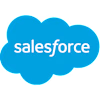
Revolutionizing Student Engagement with Education CRM
Starting at
$
100
About this service
Summary
What's included
Revolutionizing Student Engagement with Education CRM
In today’s increasingly competitive and digital-first academic landscape, higher education institutions are under pressure to attract, engage, and retain students more effectively than ever before. One tool that is emerging as a game-changer in this pursuit is the Education CRM (Customer Relationship Management system tailored for educational institutions). By transforming how schools manage relationships throughout the student lifecycle, Education CRM platforms are redefining operational efficiency and personalized learning experiences.
Duration
1 week
Skills and tools
Account Manager
Customer Success Manager
Sales Manager

Asana

Golang

HubSpot

Salesforce
Industries
